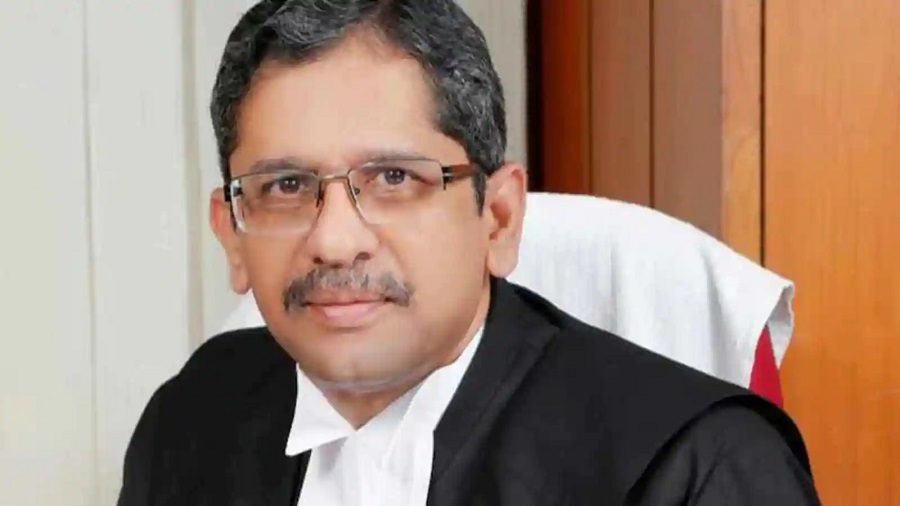Judicial infrastructure is important for improving access to justice, but it is baffling to note that its improvement and maintenance was being carried out in an ad-hoc and unplanned manner in the country, Chief Justice of India N V Ramana said on Saturday.
Noting that an effective judiciary can help in the growth of the economy, the CJI said courts are extremely essential for any society that is governed by rule of law.
CJI Ramana was speaking at the inauguration of two wings of the annexe building at the Aurangabad bench of the Bombay High Court.
The CJI said today's success should not blind us to the issues that exist.
"We are faced with certain hard facts like several courts do not have proper facilities. Some courts function out of dilapidated buildings. Judicial infrastructure is important for improving access to justice," he said.
"It is baffling to note that the improvement and maintenance of judicial infrastructure is still being carried out in an ad-hoc and unplanned manner," CJI Ramana added.
He further said that the building that was inaugurated at Aurangabad on Saturday was envisioned in 2011.
"That it has taken 10 years for this vision to be implemented is extremely worrisome. This is a deeper problem that has plugged our judicial infrastructure planning in our country since the Independence," the CJI said.
"An effective judiciary can aid in the effective growth of the economy," he said.
The CJI said he has sent a proposal for the establishment of the National Judicial Infrastructural Authority to the Union Minister of Law and Justice, and added that he was hoping for a positive response and the issue be taken up during the upcoming winter session of the Parliament.
CJI Ramana said many ideas of social revolution that have resulted in the freedom and liberty that we all take for granted today have been born out of this fertile and progressive land.
"Be it the extraordinary Savitri Phule or the pioneering feminist Jyotirao Phule or the legendary Dr Bhimrao Babasaheb Ambedkar. They always aspired for an egalitarian society where every individual's right to dignity is honoured. Together they have set in motion an irreversible social change which has finally evolved in our Constitution," CJI Ramana said.
He added that it is a common notion that only criminals and victims approach court and people take pride in stating that they have never visited or seen a court building in their lifetime.
"But it is high time we take the efforts to remove this taboo for the affirmation of a citizen's rights. The common man deals with multiple legal issues during his lifetime. One must never hesitate to approach the courts. After all, people's faith in the judiciary is one the biggest strength of democracy," the CJI said.
He added that courts are extremely essential for any society that is governed by rule of law as they actively assure the constitutional right to justice. Courts in India have always stood up whenever an individual or society is at the receiving end of executive excess, he said.
"It is an assurance that an individual, howsoever weak, need not worry about the might of a state," CJI Ramana said.
Also speaking at the function, Supreme Court Justice D Y Chandrachud said the flipside of their work is they are confronted with the extent of justice and injustice faced by citizens across the nation.
Justice Chandrachud added that while the judiciary is celebrating the inauguration of the building but at the same there has to be introspection from the judiciary on how to address the issue of pending cases in the state and country.
"As on date, there are over 48 lakh cases pending in Maharashtra with around 21,000 cases being more than three decades old. These are some of the problems we have to face. This calls for some introspection," Justice Chandrachud said.
Justice Chandrachud said the building at Aurangabad is a landmark in the history of Maharashtra.
"This building is a symbol of the ethos of Maharashtra. It represents the value of diversity, tolerance and plurality of culture in this state," Justice Chandrachud said.
He also emphasized the need to have virtual courts so that every citizen across the nation can have access to court proceedings.
"Our citizens are entitled to know how court proceedings are being held, how long judges sit, and why some cases get adjourned. This is their right to know," Justice Chandrachud said.










